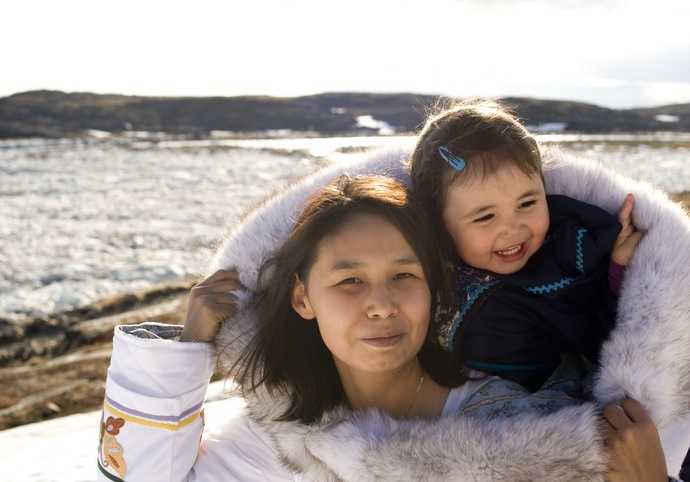
They come into the world all cute and cuddly and before you know it, they start acting in ways you don't understand and can't control.
For most parents, disciplining little ones isn't easy, because, at certain ages, young children do not have the capacity for understanding and following the simplest instructions.
They're simply hardwired to test the limits set out by their caretakers.
According to Psychology Today, it's only until the teen years that certain parts of the brain, like those needed to control impulses and moods, are developed. And it's this lack of brain development that comes across as naughty behaviour.
You may have discovered that resorting to the more traditional forms of discipline rarely work, so, how should it be done?
Also see: Five alternative discipline strategies that actually work
Would you try any of these indigenous discipline methods? What alternative approach to discipline has worked for you? Share your story with us, and we could publish your letter. Anonymous contributions are welcome.
"The calmest, coolest moms in the world"
For one mom, writer Michaeleen Doucleff, the answer came in the form of a life-changing trip to the Arctic Circle where she got first-hand experience with how "the calmest, coolest moms in the world" handled discipline.
It seems that living and thriving under harsh conditions has given the Canadian Arctic's indigenous people, the Inuit tribe, the ultimate secret to mastering discipline: emotional intelligence, specifically anger management in both parent and child.
"Anger has no purpose. It's not going to solve your problem. It only stops communication between the child and the mom," an 83-year-old Inuit mother of six told Michaeleen.
"You have to remain calm and wait for the child to calm down. Then you can teach the child."
For the Inuits, remaining calm (which includes never raising your voice) is essential to parenting and discipline, because when a parent is able to regulate their own emotions, the child learns how to do the same through their example.
In addition to maintaining an even keel, other disciplining tools the indigenous tribe swear by include storytelling, like coming up with fictitious monsters waiting in the wings to pounce if any bad behaviour ensues (think light-hearted versions of the Boogeyman), and playfully reenacting a child's tantrums.
"Typically the performance starts with the parent tempting the child to misbehave. For example, 'Why don't you hit me?' Then the child has to think: 'What should I do?' If the child takes the bait and hits, the parent doesn't scold or yell but instead acts out the consequences. 'Ow, that hurts!' Mom or Dad might exclaim, to show that hitting hurts," Michaeleen explains.
Asking the child, 'Don't you like me?', is also suggested.
The performance then becomes a sort of practice run of what appropriate behaviour looks like, an indirect lesson that is absorbed and processed organically by the child.
For Michaeleen, the Inuit methods yielded some pretty good results when used on her 3-year-old daughter, Rosy.
"Immediately, this fun tone changed Rosy's behaviour. The tension between us melted away, and the hitting decreased. I could see the little gears in her brain churning. 'Wait! Am I hurting Mom's feelings?' she seemed to be thinking."
Also see: Scaring or scarring: Does the Boogeyman really work for disciplining a child?
Tribal parenting
The Inuits aren't the only tribe to use playfulness to teach and discipline their young. Australia's Aboriginal people is another example.
Using a similarly organic method, and lack of punishment, the Aboriginal people's approach to discipline relies on "humour, teasing... and sometimes even the use of scary beings," reports Australian NGO, SNAICC.
Aboriginal wisdom reasons that children learn best through observation rather than lectures, allowing children to grasp things on their own.
"… it is expected that the children [learn] through trial and error and observation [and] over a period of years, will recognise what is expected of them and in so doing develop their own control."
The nomadic Gabra tribe, who live in both Kenya and Ethiopia, depend entirely on cattle farming for their livelihood, and embracing responsibility is therefore crucial to their survival.
Starting from as early as 3 years old, children are taught vital herding skills through the use of games.
For Native American tribes, discipline is not enforced by parents but rather assigned to teenage members of the community.
According to one Quora contributor, Weyodi O'Clerc Stern, these teenagers are given the title of “mean brother” and “mean sister."
Weyodi explains that in his tribe, "a teenager of the opposite sex was assigned to each child as soon as they reached toddlerhood." This was referred to as a 'mean brother' or 'mean sister', and served two purposes: "to keep the teenager occupied and learning responsibility" and "[to] make certain each child had an objective “minder” who could be held responsible for their actions."
The saying 'It takes a village to raise a child' has just taken on a whole new meaning now, hasn't it?
Chat back:
Would you try any of these indigenous discipline methods? What alternative approach to discipline has worked for you? Share your story with us, and we could publish your letter. Anonymous contributions are welcome.




 Publications
Publications
 Partners
Partners











